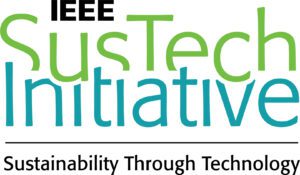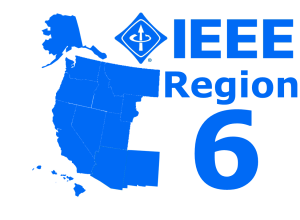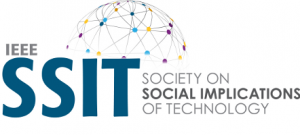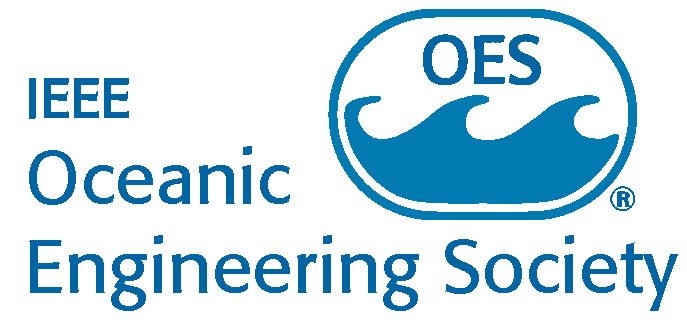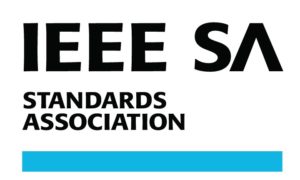Panels
SusTech 2025 features two plenary panels
- Is Sustainability Socialism? – organized by the IEEE SSIT
- Sustainability Standards – organized by IEEE SA
Is Sustainability Socialism? Panel
April 22, 11:00 am – Noon
Organized by IEEE SSIT
The IEEE Society on the Social Implications of Technology is sponsoring a panel titled “Is Sustainability Socialism?”. This panel will feature speakers about technology solutions for climate sustainability and discuss the social impact of these solutions and the role of government, not-for-profit and for-profit enterprises.
If someone asked you “Is sustainability socialism?” what would you think they wanted to know?
Climate is a major factor affecting social and economic outcomes often with first order consequences:
- temperature changes exert a remarkable influence over human systems at many social scales.
- high temperatures damage crops, inflate electricity demand, and may trigger population movements within and across national borders.
- precipitation extremes harm economies and populations, especially in agriculturally dependent settings.
Designing effective, efficient, and fair policies to manage anthropogenic climate change forces us to develop a clear quantitative understanding of how different investments today may affect economic and social possibilities in the future.
What are the panelists’ views on these effects?
Moderator: Prasanta Ghosh, SSIT
Panelists:
- Richard Matthew UC Irvine Social Ecology professor, climate change and social crises
Using Spatial Information Technologies to Address Climate Change Impacts in Fragile Social Settings
Greater awareness of climate change impacts on vulnerable communities around the world has generated calls for more aggressive climate action. One response has been to invest in Spatial Information Technologies (SITs), such as geographical information systems (GIS), digital elevation modeling (DEM), and remote sensing. SITs are an important class of technologies across different sectors (i.e. conflict, disaster risk management, health, mobility) to anticipate future challenges and devise adaptive measures to climate change. Techno-solutionists regard digital technologies as promising tools to facilitate equitable and sustainable outcomes in processes such as infrastructure development and reconstruction, economic development, and environmental assessment and programming. Proponents of SITs, for example, highlight the potential of spatial data infrastructures (SDIs) to offer broad access to objective environmental data – recognized as a step towards democratizing knowledge access, ensuring equitable resource management, and establishing land tenure rights (Dearden et al., 2024; Hordiichuk et al., 2024). Supporters of SIT application additionally point to the potential for modeling and spatial visualizations to shape data-driven and transparent decision-making in environmental management, development and peacebuilding processes; for example, hydrological modeling of rivers shared by countries in conflict as entry points for conversation and mediation (Dearden et al., 2024).
The application of SITs, however, has also spurred heightened concerns over the potential escalation of surveillance, control, and discrimination of vulnerable populations across the globe. Today, scholars, activists, and development practitioners have called attention to the potential ethical implications of applying SITs – most notably, the consequences for civilian groups in unstable social contexts, such as forcibly displaced populations facing imminent risk of discrimination and persecution (Pelletier et al., 2024; Jacobsen & Landau, 2003). Can powerful SITs be employed in ways that maximize social value and minimize risks to vulnerable communities?
- Brett Sanders UC Irvine Civil Engineering professor, flood control and climate change, UCI Blum Center for Poverty Alleviation
Flood Risk Assessment and Management: the Roles and Responsibilities of Government, Nonprofits and For-Profit Enterprises
The impacts of flooding from extreme weather events, as measured by exposed populations and economic losses, have been on the rise for several decades. Some of the factors driving these trends include increasing development in high-hazard areas, more intense and prolonged storm systems, and high levels of physical and social vulnerability to flooding. But across many different climate risks such as heat waves, air pollution, and wildfires – flood risk tends to be more highly localized which makes it especially challenging to accurately predict, and in turn, build awareness, plan effective responses and achieve greater resilience. Moreover, a range of data products mapping the spatial distribution of hazards and risks have emerged over recent years to meet the differing needs of governments, businesses, engineering firms, property owners, and residents, and studies point to markedly different risk assessments depending on the chosen data source.
Here we will share insights into modeling approaches used today to estimate risks, some of their biases, and implications for end-users. We will also discuss the potential for future shifts in roles and responsibilities for flood risk management in the U.S., given the changing role of the Federal Emergency Management Agency.
Additional Panelists:
- Alan Booker (LEED AP BD+C, WELL AP, LFA, GRP) is the founder and executive director of the Institute of Integrated Regenerative Design
- Julija Saveljeva is a PhD candidate and research assistant at the BA School of Business and Finance, Latvia.
Bios:
 Prasanta K. Ghosh is currently a Faculty Member with the Department of Electrical Engineering and Computer Science, Syracuse University. He has been conducting research in the area of microelectronics and power engineering. He has authored or coauthored many journal articles and conference papers in the area of thin films, solid-state devices, and power engineering. As a Fulbright Scholar, he has traveled internationally to teach engineering students and delivered lectures on his research. His current research interests include microgrid, sensors, cloud computing, and bio-inspired control for power systems.
Prasanta K. Ghosh is currently a Faculty Member with the Department of Electrical Engineering and Computer Science, Syracuse University. He has been conducting research in the area of microelectronics and power engineering. He has authored or coauthored many journal articles and conference papers in the area of thin films, solid-state devices, and power engineering. As a Fulbright Scholar, he has traveled internationally to teach engineering students and delivered lectures on his research. His current research interests include microgrid, sensors, cloud computing, and bio-inspired control for power systems.
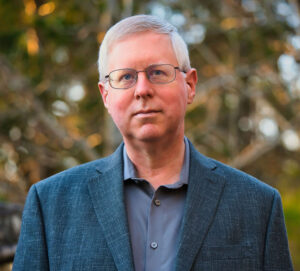 Alan Booker (LEED AP BD+C, WELL AP, LFA, GRP) is the founder and executive director of the Institute of Integrated Regenerative Design, which trains professional design practitioners to create systems that are ecosystemic, biocompatible, and regenerative. With a degree in electrical engineering, he has over 35 years’ experience in engineering and 25 years in sustainable and regenerative design.
Alan Booker (LEED AP BD+C, WELL AP, LFA, GRP) is the founder and executive director of the Institute of Integrated Regenerative Design, which trains professional design practitioners to create systems that are ecosystemic, biocompatible, and regenerative. With a degree in electrical engineering, he has over 35 years’ experience in engineering and 25 years in sustainable and regenerative design.
Alan is the creator of the Integrated Regenerative Design framework and the lead author of the Biocompatible Design Standard.
Alan is currently completing work on the draft release of the Biocompatible Design Standard and documenting his research into technically-rigorous definitions for the terms regenerative and sustainable in the forthcoming book The Dynamics of Regenerative and Sustainable Holons.
 Richard Matthew is a Professor of Urban Planning and Public Policy at the University of California at Irvine. He is the Director of two programs at UCI: the Alec Glasser Center for the Power of Music and Social Change, and the Climate and Urban Sustainability Program. He also directs the University of California’s Institute on Global Conflict and Cooperation’s Climate Change and Security Program. He is a Senior Fellow at the International Institute for Sustainable Development; a member of the United Nations Expert Group on Environment, Conflict and Peacebuilding; and a member of the International Union for the Conservation of Nature’s Commission on Environment, Economic and Social Policy, where he co-chairs the Task Force on Climate Change and Migration. He co-founded the eARTh Studio with aerial dancer Pamela Donohoo.
Richard Matthew is a Professor of Urban Planning and Public Policy at the University of California at Irvine. He is the Director of two programs at UCI: the Alec Glasser Center for the Power of Music and Social Change, and the Climate and Urban Sustainability Program. He also directs the University of California’s Institute on Global Conflict and Cooperation’s Climate Change and Security Program. He is a Senior Fellow at the International Institute for Sustainable Development; a member of the United Nations Expert Group on Environment, Conflict and Peacebuilding; and a member of the International Union for the Conservation of Nature’s Commission on Environment, Economic and Social Policy, where he co-chairs the Task Force on Climate Change and Migration. He co-founded the eARTh Studio with aerial dancer Pamela Donohoo.
His research includes: examining links among climate change, conflict, public health and migration; developing evidence-based solutions to human trafficking; developing high resolution flood risk models in complex urban environments; and using music to mobilize youth around climate change and sustainable urban redevelopment. Fieldwork sites: Cambodia, Democratic Republic of the Congo, Eswatini, Malawi, Mexico, Nepal, Pakistan, Paraguay, Rwanda, Sierra Leone and USA. UN humanitarian and peacebuilding missions: DRC, Rwanda and Sierra Leone. >200 publications. H-index 41.
Website: https://ucigcc.org/people/richard-matthew/
 Brett Sanders is a Chancellor’s Professor of Civil and Environmental Engineering, Urban Planning and Public Policy at UC Irvine. He earned a B.S. in Civil Engineering from the University of California, Berkeley and an M.S. and PhD in Civil Engineering at the University of Michigan emphasizing environmental fluid mechanics and computational methods.
Brett Sanders is a Chancellor’s Professor of Civil and Environmental Engineering, Urban Planning and Public Policy at UC Irvine. He earned a B.S. in Civil Engineering from the University of California, Berkeley and an M.S. and PhD in Civil Engineering at the University of Michigan emphasizing environmental fluid mechanics and computational methods.
Dr. Sanders’ research seeks to promote improved understanding of and responses to flooding and erosion risks. His work addresses coastal, riverine, urban and mountain risks. He is the developer of the ParBreZo and PRIMo flood simulation models for compound risk assessment at local to regional scales, and his work has informed the practice of collaborative flood modeling for effective and equitable flood adaptation. Dr. Sanders focuses research on compound and interconnected climate risks, and he presently leads collaborative flood modeling projects in California and Florida.
Dr. Sanders is a Fellow in the Engineering Mechanics Institute of ASCE, a Fellow of the Environmental and Water Resources Institute of ASCE, Fellow of the Faculty Academy for Teaching Excellence, a Chapter Author for the 6th National Climate Assessment, a recipient of the National Science Foundation CAREER Award, a Member of the Science Advisory Panel for the California Coastal Commission, and the recipient of numerous teaching awards at UCI.
Website: floodlab.eng.uci.edu
 Julija Saveljeva is a PhD candidate and research assistant at the BA School of Business and Finance, Latvia. She has industry experience in the financial sector, having held various roles with a primary focus on IT management and the implementation of EU regulations in this field. Julija is currently involved in the research project CyberSustain, which aims to investigate the interrelationship between sustainable cybersecurity, sustainability reporting, and the strategic resilience of companies. The project also assesses organisational preparedness for integrating cybersecurity and sustainability practices to enhance long-term resilience. Her broader research interests include cybersecurity management, digital trust, third-party risk management, and the EU regulatory landscape.
Julija Saveljeva is a PhD candidate and research assistant at the BA School of Business and Finance, Latvia. She has industry experience in the financial sector, having held various roles with a primary focus on IT management and the implementation of EU regulations in this field. Julija is currently involved in the research project CyberSustain, which aims to investigate the interrelationship between sustainable cybersecurity, sustainability reporting, and the strategic resilience of companies. The project also assesses organisational preparedness for integrating cybersecurity and sustainability practices to enhance long-term resilience. Her broader research interests include cybersecurity management, digital trust, third-party risk management, and the EU regulatory landscape.
She will presenting the paper (extended abstract): “Integrating Cybersecurity into Sustainability Management: Current Practices and Future Directions“ coauthored by Liga Peiseniece (BA School of Business and Finance, Latvia); Inga Uvarova (BA School of Business and Finance & ARTSMART, Latvia); Tatjana Volkova, Julija Saveljeva, Jekaterina Novicka and Gatis Polis (BA School of Business and Finance, Latvia); Silvija Kristapsone and Aivars Vembris (University of Latvia, Latvia) during the Wednesday Management track.
Sustainability Standards Panel
April 23, 3:30 – 4:30 pm
Organized by IEEE-SA
Standards are a key enabler and accelerator in addressing sustainability issues, helping solutions to scale at the pace required to meet global targets, such as UN Sustainable Development Goals (SDGs). IEEE Standards Association (IEEE SA) has been at the forefront of driving sustainability focused standards and related work to help achieve these goals. This panel will provide an overview of IEEE SA initiatives in standards, along with a deeper dive into issues such as maritime electrification, the energy-water nexus, socio-technical standards, standards related to IEEE Planet Positive 2030 Initiative, and standards related to policy engagement with governments, NGOs, and the UN.
Moderator: Maike Luiken
Panelists:
- Standards Initiatives in Support of Sustainability – Maike Luiken
- Sustainable Maritime – Sustainable ships/ports – Rudi Schubert
- The Energy/Water Nexus – Mark Siira
- Standards and the UN Sustainable Development Goals (SDGs) – Karen Mulberry
Bios:
 Maike Luiken, PhD, SMIEEE, IEEE-HKN, FEIC, FCAE is a member of the IEEE Standard Association Board of Governors and the IEEE SSIT Board of Governors. She chairs IEEE Planet Positive 2030, the IEEE P7800TM Standards Working Group: Recommended Practice for Addressing Sustainability, Environmental Stewardship and Climate Change Challenges in Professional Practice, and the Green Hydrogen IEEE SA Industry Connections Program. She is a co-chair, IEEE Future Directions SusTech Initiative.
Maike Luiken, PhD, SMIEEE, IEEE-HKN, FEIC, FCAE is a member of the IEEE Standard Association Board of Governors and the IEEE SSIT Board of Governors. She chairs IEEE Planet Positive 2030, the IEEE P7800TM Standards Working Group: Recommended Practice for Addressing Sustainability, Environmental Stewardship and Climate Change Challenges in Professional Practice, and the Green Hydrogen IEEE SA Industry Connections Program. She is a co-chair, IEEE Future Directions SusTech Initiative.
Maike is a longtime advocate for sustainable development and for the deployment and use of technology that is ‘sustainable by design’ to achieve a long-term healthy planetary biosphere.
Her areas of interest and expertise span diverse technical areas from ICT, energy, and water to advanced manufacturing. She has particular interest in how progress and deployment of various technologies contributes – or not – to achieving sustainable development.
She is managing director, R&D, at a start-up company, Carbovate Development, and Adjunct Research Professor, Western University, Canada.
Maike’s career spans academia and industry in Canada, USA and Germany. She is/has been serving on numerous Boards of Directors and Committees, including IEEE and the Canadian Standards Council Steering Committee of the Artificial Intelligence and Data Governance Standardization Collaborative.
 Karen Mulberry is Senior Manager, Technology Policy and Government Affairs at IEEE Standards Association (SA) where she manages strategic public and government affairs programs at the intersection of technology, standards, regulation, and policy. Karen has been involved in developing strategic initiatives that shape standards development and technical policy as well as provide thought leadership throughout her career. Karen’s background includes working at ICANN, the Internet Society, Neustar and Verizon. She holds a BS in Organizational Behavior from the University of San Francisco and an MBA from the University of Phoenix.
Karen Mulberry is Senior Manager, Technology Policy and Government Affairs at IEEE Standards Association (SA) where she manages strategic public and government affairs programs at the intersection of technology, standards, regulation, and policy. Karen has been involved in developing strategic initiatives that shape standards development and technical policy as well as provide thought leadership throughout her career. Karen’s background includes working at ICANN, the Internet Society, Neustar and Verizon. She holds a BS in Organizational Behavior from the University of San Francisco and an MBA from the University of Phoenix.
http://www.linkedin.com/in/karen-mulberry
 Rudi Schubert is the Director, New Initiatives for the IEEE Standards Association, and lead for its Energy Practice. He leads the IEEE Industry Connections program, operating consensus building interest groups across a portfolio of emerging issues and topics including sustainability, renewable energy, autonomous and intelligent systems, big data, next generation vehicle technologies and many others.
Rudi Schubert is the Director, New Initiatives for the IEEE Standards Association, and lead for its Energy Practice. He leads the IEEE Industry Connections program, operating consensus building interest groups across a portfolio of emerging issues and topics including sustainability, renewable energy, autonomous and intelligent systems, big data, next generation vehicle technologies and many others.
Before joining the IEEE, Rudi was a principal engineer for EnerNex, providing technical expertise on technology standards and testing programs to the National Institute of Standards and Technology (NIST). He also spent twenty years in progressively expanding leadership roles with Telcordia Technologies (formerly Bellcore) establishing technical criteria and implementation methodologies that become a mandated compliance and certification standard used by US telecom carriers for technology deployment.
Rudi has a 25+ year record of leading, developing and implementing industry standards and testing programs, and facilitating teams to achieve consensus expectations for functional performance, interoperability, product robustness and safety. He holds bachelors and masters degrees in mechanical engineering from Stevens Institute of Technology, Hoboken, New Jersey.
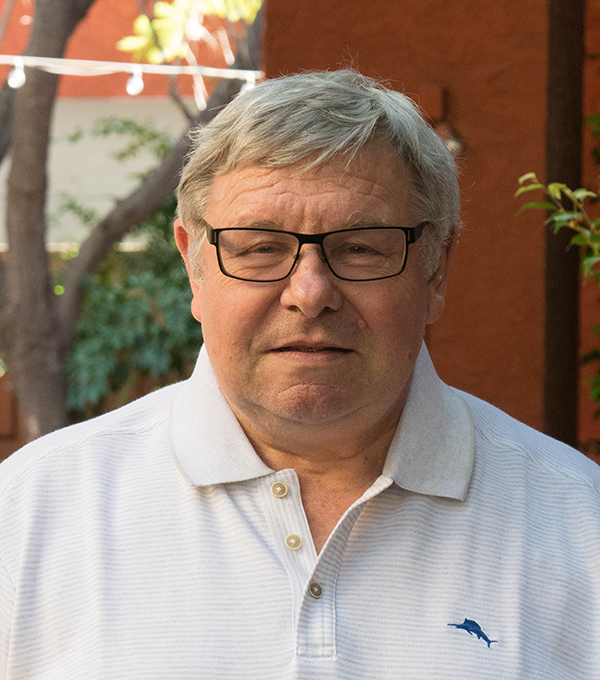 Mark Siira is a senior member of IEEE and currently active as a leader in several standards making organizations – Concurrent leadership roles related to standards include:
Mark Siira is a senior member of IEEE and currently active as a leader in several standards making organizations – Concurrent leadership roles related to standards include:
- Chair of IEEE Standards Coordinating Committee 21 – IEEE Coordinating Committee on Interconnection and Smart Grid Interoperability
- Chair of IEEE P2030 – Guide for Smart Grid Interoperability, IEEE 2030.2-2015 – Guide for Energy Storage Interoperability, Vice-Chair for IEEE1547 Interconnection Standard Revision.
Mark is also an active participant in the IEEE Power Systems Relaying Committee, including K10 Liaison, C26 Protection Testing and is a member of the UL Standards Technical Panels 1741 (Inverters), UL2200 (Generators) and 3001 (Systems).
Mark has a Bachelor of Mechanical Engineering Degree from GMI Engineering and Management Institute (now Kettering University), and an MBA from Harvard Business School.




